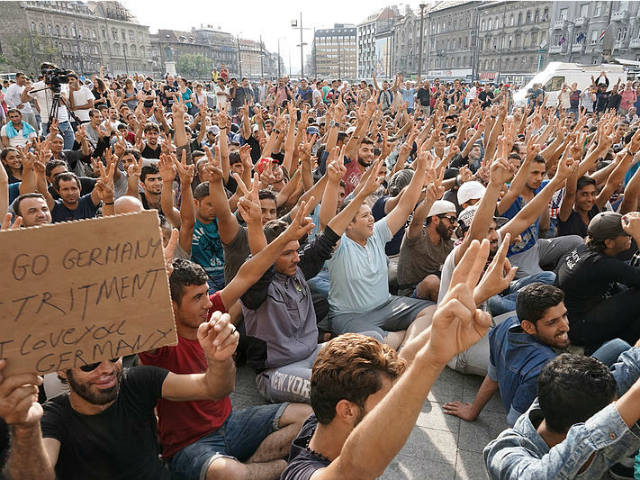Poland and the Czech Republic have slammed the European Union’s (EU) decision to ‘sanction’ them for rejecting compulsory migrant quotas, with the latter citing “security” issues and promising to defend the right to reject migrants.
Rafal Bochenek, a spokesman for the conservative Polish Prime Minister Beata Szydło, said the Polish leadership does not agree with the unelected Commission’s decision, reiterating the argument that forced relocation is not a good solution to the migrant crisis.
Czech Prime Minister Bohuslav Sobotka was even more blunt, insisting his country will not change its view of the forced migrant relocation plan.
According to AP, he said Tuesday: “The Czech Republic doesn’t agree with the relocation system based on migrant quotas. And given the worsened security situation in Europe and also that the quota system is not functioning, it won’t participate in it.”
He said his government was ready to “consistently defend our view at the EU level and at the relevant court institutions”.
Numerous asylum seekers from Syria and other countries have been implicated in recent terror attacks in Europe, including Paris, Germany, and London.
The EU’s interior ministers forced through the plan to relocate 160,000 migrants across member states in September 2015 – regardless of the views of national governments and their populations.
The plan stated that countries refusing to accept the quotas can be fined 0.002 per cent of their GDP by the EU – meaning Poland could be fined nearly ten million U.S. dollars based on its 2015 GDP.
The method the EU used to force through the policy is called “qualified majority voting” (QMV), and was predicted by former UKIP leader Nigel Farage in a Breitbart London column just four days before.
Objections from Romania, the Czech Republic, Slovakia, and Hungary were overruled, as a QMV vote is heavily weighted in favour of larger, more powerful states such as France and Germany.
Hungary and Slovakia have since launched their own legal action against it. Just three months before the September 2017 deadline for the completion of the relocation, fewer than 21,000 migrants have been moved.

COMMENTS
Please let us know if you're having issues with commenting.